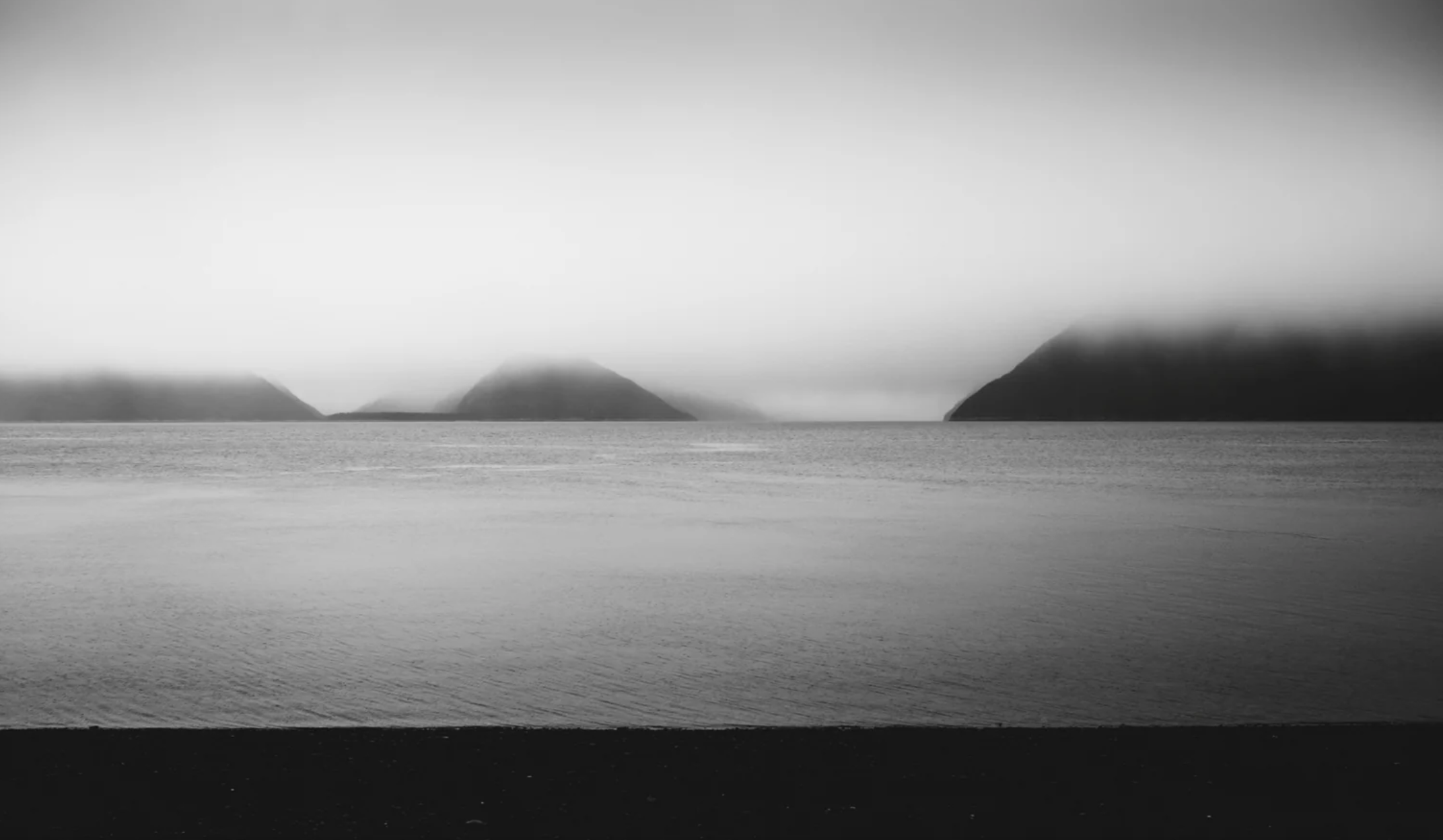NONFICTION
A LETTER TO MY FOUR-YEAR-OLD SON, ON MOVING FROM SOUTHEAST ALASKA TO NEW ENGLAND
“The ocean was off to one side, the rainforest off to the other, but all you could see was straight ahead, and down, to the patch of earth where your courage would land you.”
December 21, 2023 | by Elizabeth BoltonWe may not live there anymore, but the truth is this: you will always know a wilder home, where a three-legged bear routinely wandered the yard in the pre-dawn hours and attempted to rifle through the garbage, and where our weeks were guided by the sea—with negative tide days dictating our beach combing, while rainy winds that whipped across the water sent us back to the car and a thermos of hot chocolate before we might have been ready. It wasn’t a fully wild life (because of those garbage cans and thermoses, because we had indoor plumbing and a freezer and a TV that played The Octonauts when we got home from those rainy days at the beach). But it was wilder than some lives, wilder than my own childhood in the city, wilder than I might have hoped for my children’s childhoods. I thought about writing, “You’re lucky,” but that feels inaccurate. Luck implies kismet, a sense that things came together by chance, but we chose this particular world of luck for you. I was newly pregnant when we moved to the island, and I knew you’d be barefoot in the mud and the sand; I pictured your tow head and naked back curved over a dump truck in a pile of wood chips long before your tow head and naked back arrived in this world, long before an uncle sent you the dump truck and it went from shiny to scarred, as we all eventually do.
You keep asking why—why we no longer live in the red house, and why we left there in the first place. I sometimes wonder the same. You miss the yellow slide the most. I can picture the first time you toddled up the ladder and down the slide, your small face shining with pride. The ocean was off to one side, the rainforest off to the other, but all you could see was straight ahead, and down, to the patch of earth where your courage would land you.
People tell me that you won’t remember the island at all, the island where you were born, but I disagree. On summer days, in northern lakes, the topmost inch of water is warm and still, but underneath the lake stays cold; your memories will be like this. As an adult you will remember those things on the top. The deeper memories will lie dormant, but they will still live within you. On those bottom-of-the-lake days, we stay in longer because we feel warm. But when we get out our feet are cold from dangling below. Our bodies know what they have felt; they hold the imprint long after we’ve toweled dry and lain on lawn chairs in the sun, legs still pulsing.
The monikers—the “red house,” the “yellow slide”—the monikers will fade, but you will remember this home in your body, in your bones. At four you think about the island a lot, because it is all you know. In ten years, you may not think about it much. In thirty years, though, or forty, something will call you to the sea on a rainy day. You will slide into a battered pair of rain boots, and you will make your way down the rocky path, hugging a sweater tight around you. You will look out across the water and something inside of you will settle. You will stand there for a long time, or you will walk up and down the beach, raindrops stinging your cheeks. Your friends will have cancelled, because no one else wants to go to the beach in the rain, so you’ll be alone. Or maybe not—maybe the person you love will be there with you, indulging you this eccentricity. Perhaps you’ll hold the hand of a small child who has been promised hot chocolate. She’ll stoop down to pick up shards of smooth sea glass and broken shells, and then she’ll extend her gritty hands to you—her back to the ocean, her face wet with rain—offering you what she’s found.
Elizabeth Bolton is an MFA candidate in creative nonfiction at the University of Alaska Fairbanks. Liz was a 2022 recipient of the AWP Intro Journals Prize for nonfiction, received the inaugural Frank Soos Creative Writing Scholarship, and recently finished a yearlong graduate fellowship with the Herstory/Coalition for Community Writing Institute. Her work has been published or is forthcoming in Barren Magazine, The Dodge, The Palisades Review, and Puerto del Sol.


